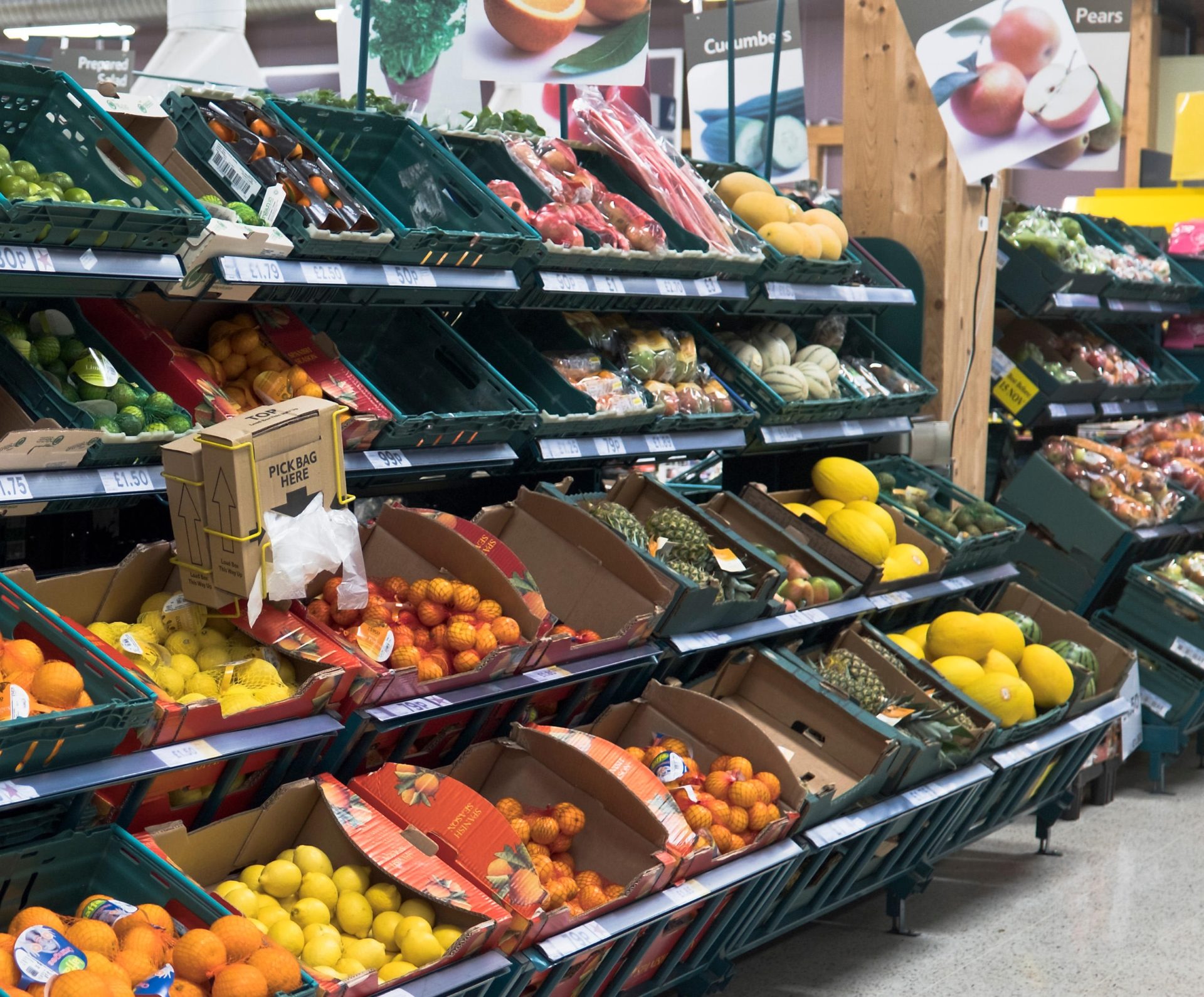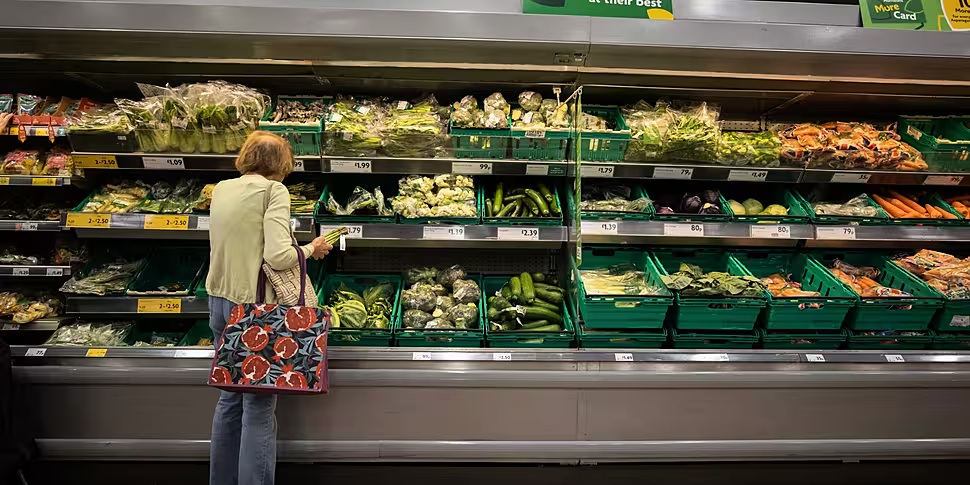Boosting the minimum wage by 12% would increase grocery bills by 2.5%, ISME has claimed.
The Low Pay Commission has urged the Government to increase the minimum wage from its current rate of €11.30 an hour to €12.70 an hour next year.
No formal decision will be made until the autumn budget but the Irish Small and Medium Enterprise Association (ISME) is warning the plan could fuel inflation.
“Depending on store size, the cost of the labour input to your grocery bill is somewhere between 8% in the large discounters, up to 20% for small convenience or corner stores,” CEO Neil McDonnell told Newstalk Breakfast.
“So, it’s very simple; you factor that into a 12% increase in the national minimum wage.
“By the way, very few, if any, store workers are on that - but an awful lot of workers working up to €30,000 a year have their hourly rate benchmarked against that.”
 Fruit on display in a Tesco supermarket. Picture by: Doug Houghton / Alamy Stock Photo
Fruit on display in a Tesco supermarket. Picture by: Doug Houghton / Alamy Stock PhotoMr McDonnell conceded there had been “two decades of next-to-zero inflation” on certain essential items but said the global economy had changed significantly.
“Last year, for the first time we had quite serious inflation - particularly in food, fuel and energy,” he said.
“That has not washed out of the system and we acknowledge the Irish inflation rate is down to 4.8% now - but people are still looking at core and non-inflation, that’s still quite significant in comparison to what they had before.”
Forecast
The EU has forecast the rate of inflation in Ireland will drop to 2.6% next year but Mr McDonnell believes boosting the minimum wage could put that at risk.
“The difficulty for us is if you try this one-size-fits-all [approach] across the board, if you’re going to have an impact on groceries that’s between 1 and 2.5% that actually feeds into the inflation that’s driving the demand for pay rises,” he said.
“So, this dog chases its tail.”
A 12% increase in the minimum wage would mean an individual working a 40-hour week would see their pay increase by €56.
You can listen back here:
Main image: A woman doing her shopping. Picture by: Alamy.com









